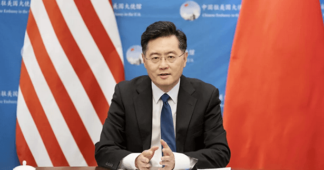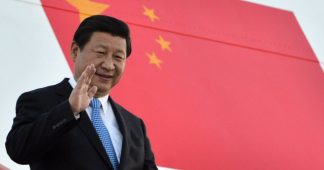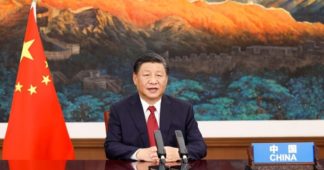By Peter Koenig
11 November 2021
What always impresses me about the Chinese concept of development, is the vision for sharing – the intent of sharing wealth and prosperity – it fits typically the concept of Socialism with Chinese characteristics.
This Chinese Vision on Common Prosperity is no different.
China is embarking on her vision of comprehensively building a modern socialist country, envisioning a future where prosperity is shared by everyone in the country.
And let me add – China’s vision of a shared prosperity goes way beyond her borders – as shown by the Belt and Road Initiative (BRI) – to mention just one gigantic initiative that aims at building a more equitable world by spreading not only the concept of “Common Prosperity”, but also the notion of learning through physical work and organization in cooperation with countries around the globe.
Common Prosperity refers to affluence shared by everyone both in material and cultural terms, and should be advanced step by step. It should be emphasized that such prosperity does not cover only a few people or parts of the country. It aims at an equilibrium of wealth and prosperity throughout the country.
Common Prosperity should be attained through hard work and innovation, with chances for more people to become moderately prosperous.
Common Prosperity is a key element of socialism.
It is not just an equal distribution of goods and assets.
It is much more.
It involves people, working and engaging themselves on gaining knowledge to make Common Prosperity a sustainable objective, and to incite new ideas, for example, through education programs and interchange of experiences, as well as joint country-to-country projects with Technical Assistance (TA) through the Belt and Road Initiative.
In February this year, President Xi Jinping, addressed the nation on China’s achievements in eradicating poverty and to commend outstanding efforts by individuals. He said China stands for a people-centered development philosophy. China unwaveringly pursues improving people’s well-being and realizing Common Prosperity, being the essential requirements of socialism.
President Xi also stressed the importance of consolidating poverty alleviation achievements and rural vitalization, with the objective to work towards narrowing the wealth gap between urban and rural areas. This is the next step after eradicating extreme poverty last year.
China emphasizes Common Prosperity, ever since the 18th National Congress of the Communist Party of China in 2012, when the country has gradually put Common Prosperity in a more prominent position.
A logical next step to poverty alleviation is sharing prosperity within the boundaries of China, bringing an improved equilibrium to well-being in the country, especially between the western parts of China and the industrialized East, with the goal of building a moderately prosperous society in all respects.
In addition to Common Prosperity for her country, China has favorable conditions, to help bringing Common Prosperity to the rest of the world, especially to those nations still struggling under poverty and unfavorable economic conditions, often still the remnants of western colonialism.
China is also a Consultative Democracy, of which the distinctive feature is a People’s Democracy.
China’s social networks and information technology have made it possible for the widest range of public opinion to be better represented. These channels have become an important reference for democratic policymaking.
Part of this policy making process is the concept of “Shared or Common Prosperity”. Therefore, “Common Prosperity” is not just a top-down decision – it is a policy shared and supported by the people. Since it is people supported, it is sustainable. It is a policy that gains momentum as it advances.
The very process of collaboration with people, with people even from other countries and different cultures – I mentioned before the Belt and Road Initiative – is a dynamic process. It brings about new ideas – a concept of building a world, envisioning Common Prosperity and a shared future for all.
Common Prosperity is a noble and worthy objective that helps connect the world in Peace and – yes – in Prosperity.
* Peter Koenig is a geopolitical analyst and a former Senior Economist at the World Bank and the World Health Organization (WHO), where he has worked for over 30 years on water and environment around the world. He lectures at universities in the US, Europe and South America. He writes regularly for online journals and is the author of Implosion – An Economic Thriller about War, Environmental Destruction and Corporate Greed; and co-author of Cynthia McKinney’s book “When China Sneezes: From the Coronavirus Lockdown to the Global Politico-Economic Crisis” (Clarity Press – November 1, 2020)
Peter Koenig is a non-resident Sr. Fellow of the Chongyang Institute of Renmin University, Beijing. He is also a Research Associate of the Centre for Research on Globalization.
We remind our readers that publication of articles on our site does not mean that we agree with what is written. Our policy is to publish anything which we consider of interest, so as to assist our readers in forming their opinions. Sometimes we even publish articles with which we totally disagree, since we believe it is important for our readers to be informed on as wide a spectrum of views as possible.










